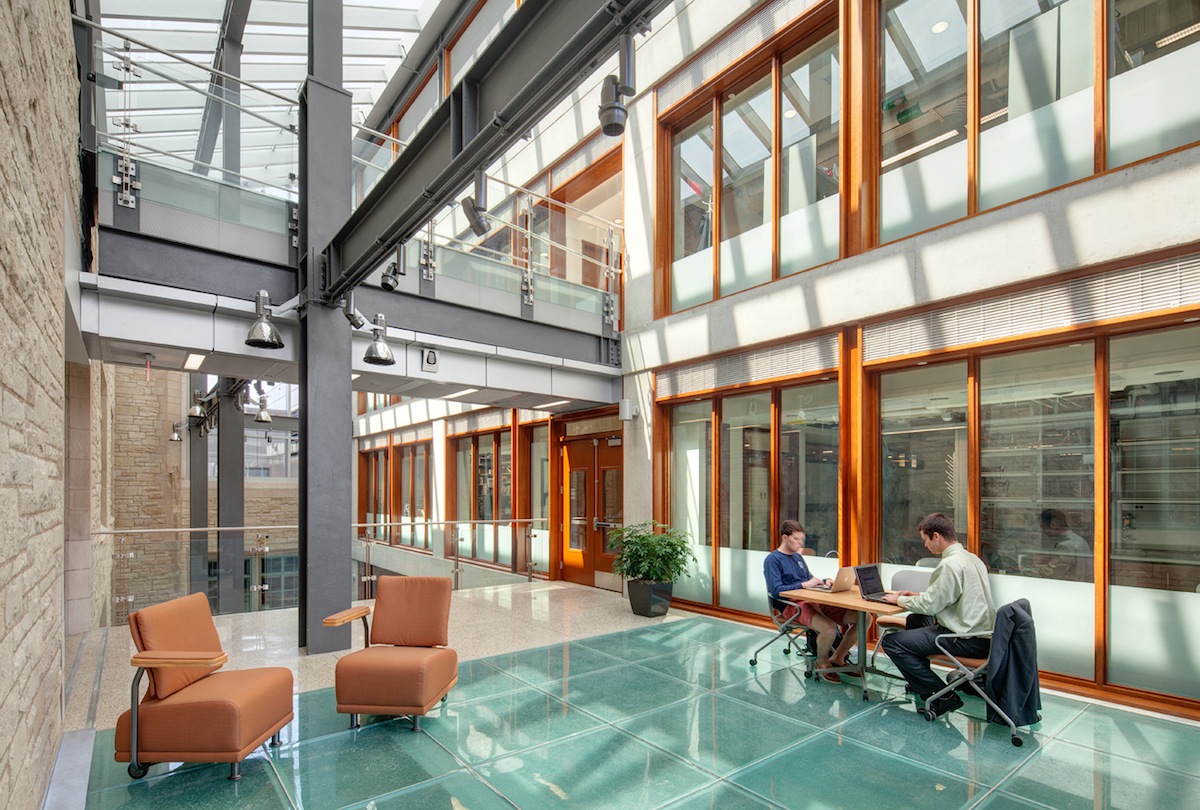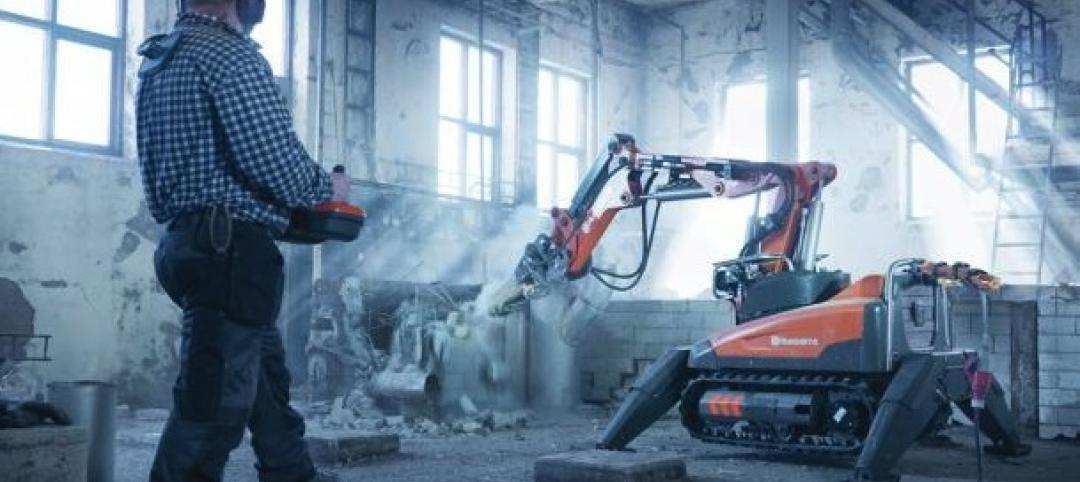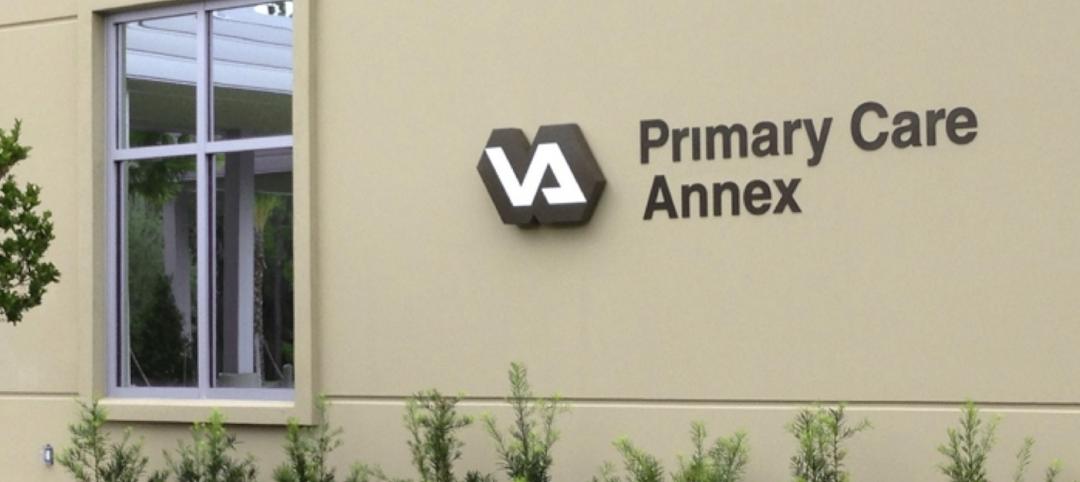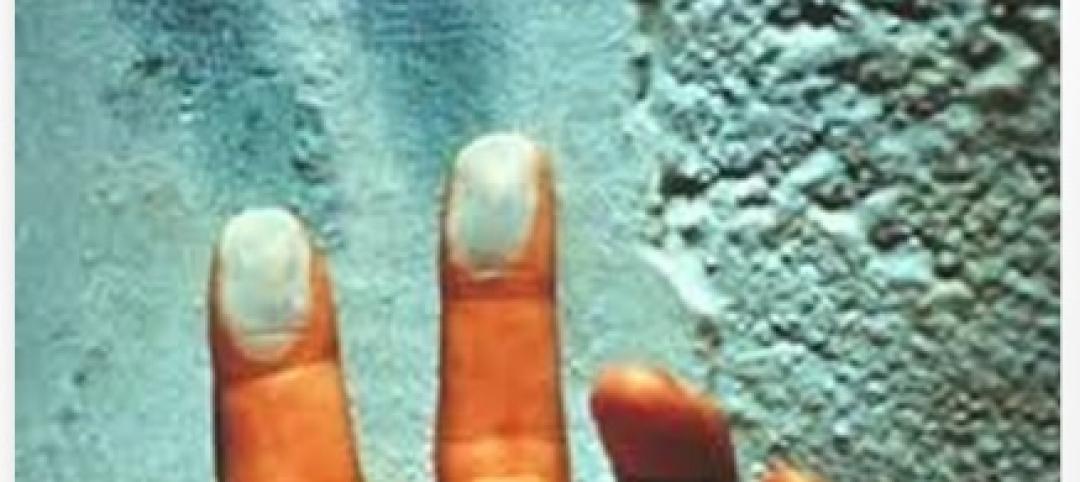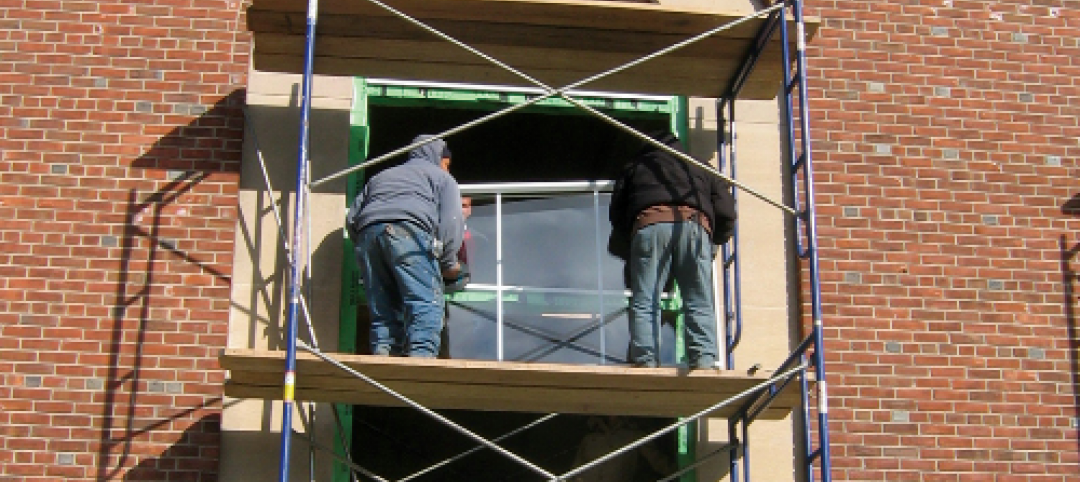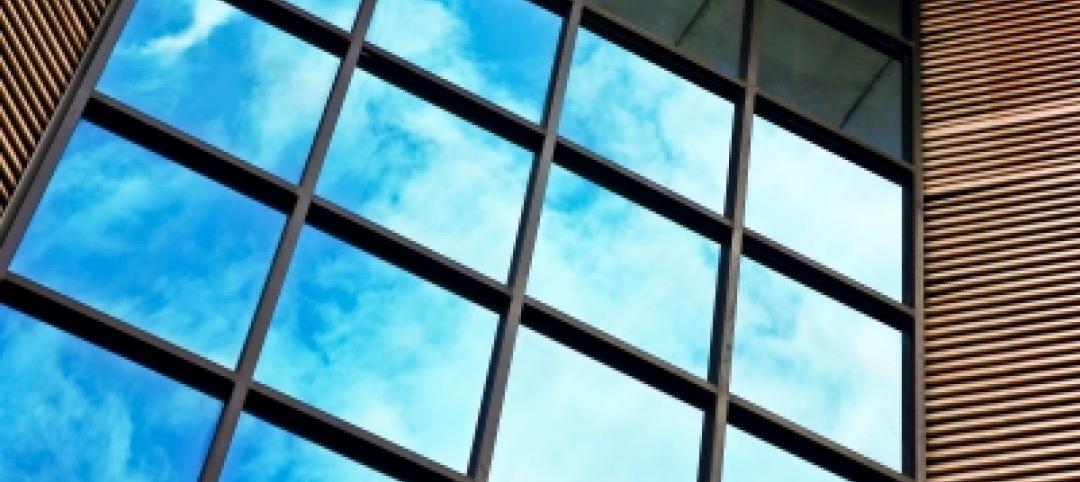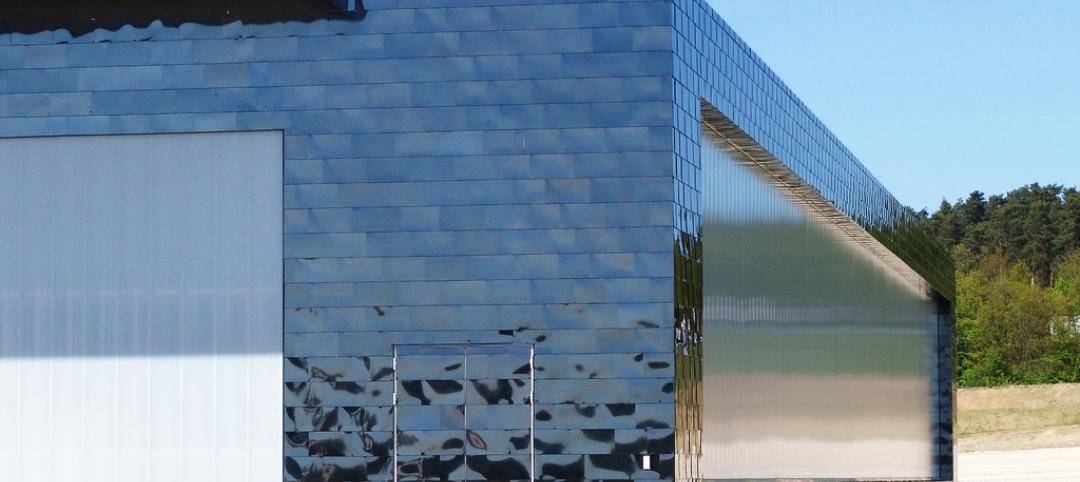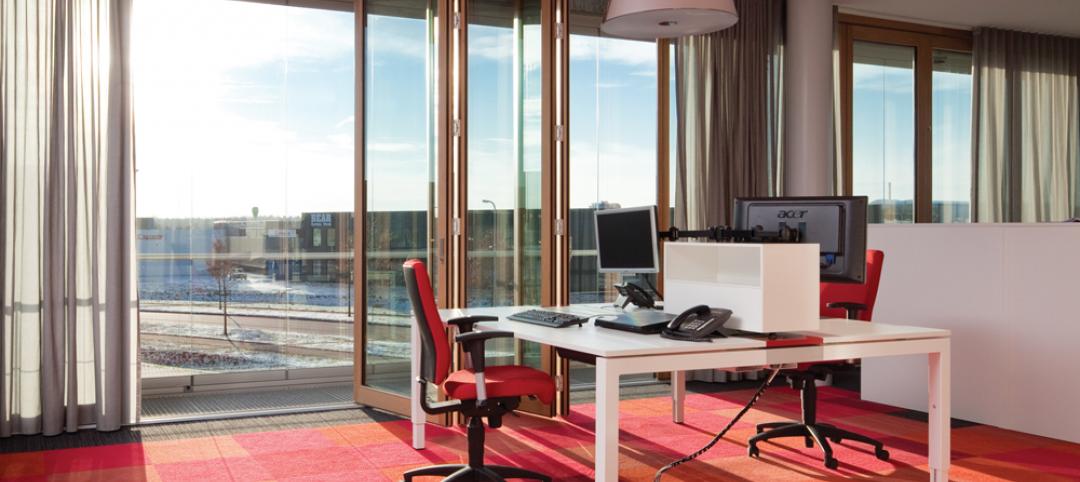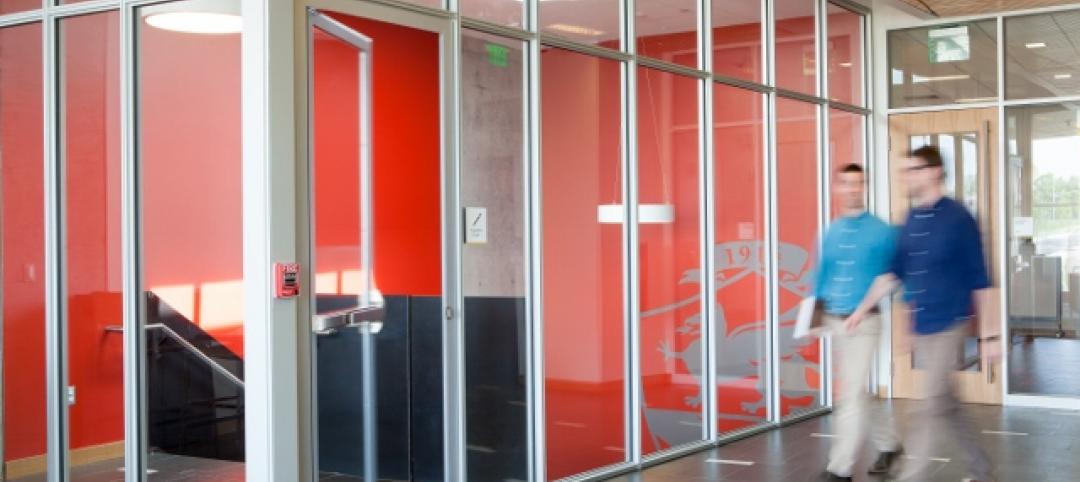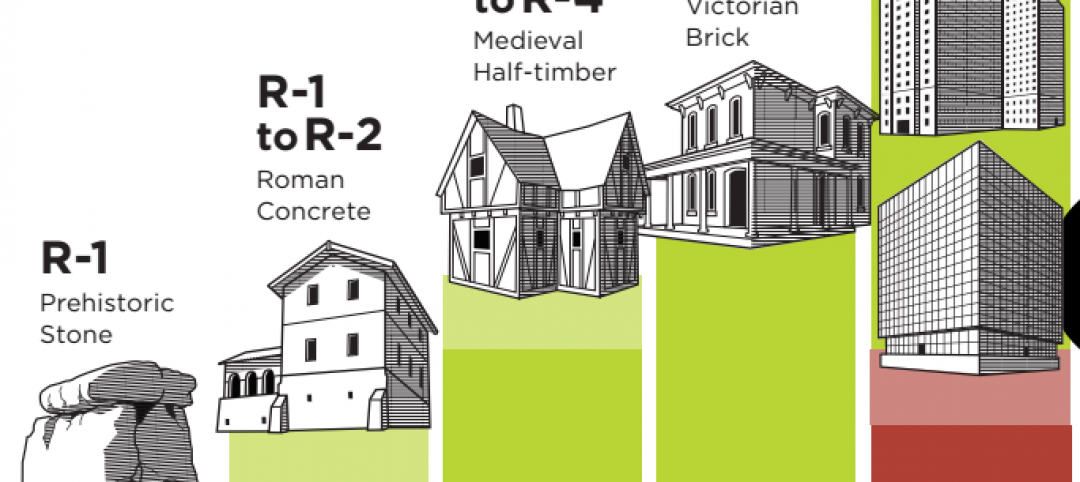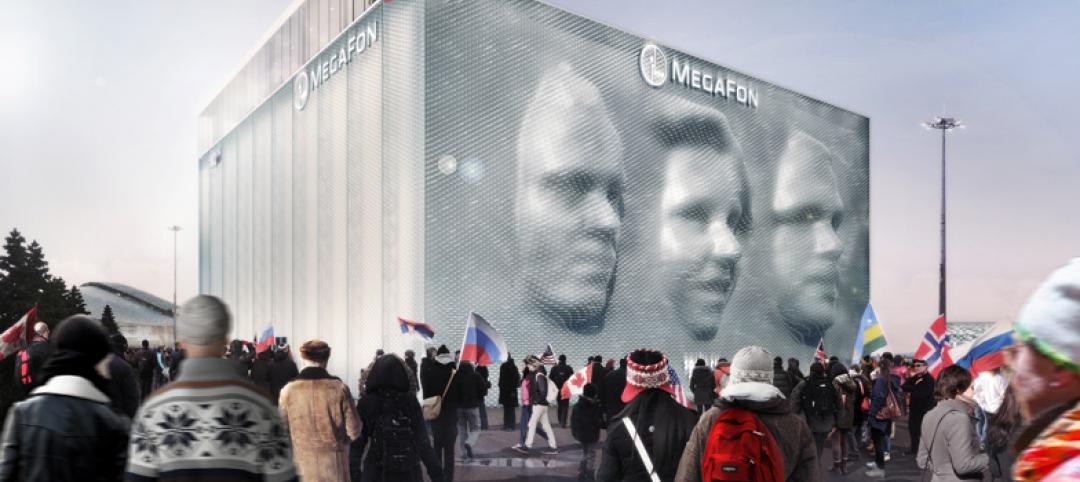Project: Northwestern University Engineering Life Sciences
Location: Evanston, Ill.
Architect: Flad Architects
Glazing Contractor: Mid-States Glass and Metal, Inc.
Glazing System Supplier: Technical Glass Products
Glass Style: Fireframes ClearFloor® Fire-Rated Glass Floor System
In implementing Northwestern University’s Engineering Life Sciences infill design, Flad Architects faced the challenge of ensuring adequate, balanced light given the adjacent, existing building wings. This was particularly important in the nuclear magnetic resonance lab and other ground floor areas, as too much direct sunlight could harm specialized instruments.
To allow for light penetration from the fifth floor to the ground floor, the design team desired a large, central atrium. One potential setback with drawing light through the atrium was meeting fire and life safety codes. The firm needed a code-approved floor to divide the shaft into two segments, and to provide a barrier to fire and chemicals in the case of an accident. However, many of the floor systems available to meet these stringent fire and life safety codes were opaque fire-stopping materials such as concrete and corrugated steel.
To satisfy fire and life safety codes and help illuminate the infill, the design team used a fire-rated glass floor system developed by Technical Glass Products (TGP). The Fireframes ClearFloor® System consists of two-hour fire-rated Pilkington Pyrostop® heat barrier glass; a tempered, laminated walking surface glass; and a steel framing grid. It is fire-rated for two hours and provides a barrier to flames and smoke, as well as radiant and conductive heat.
“We needed a fire barrier in the atrium, but we didn’t want researchers and students to be in the dark,” says Garrett. “The fire-rated glass floor system allowed us to compartmentalize a very large volume of space without blocking off access to daylight.”
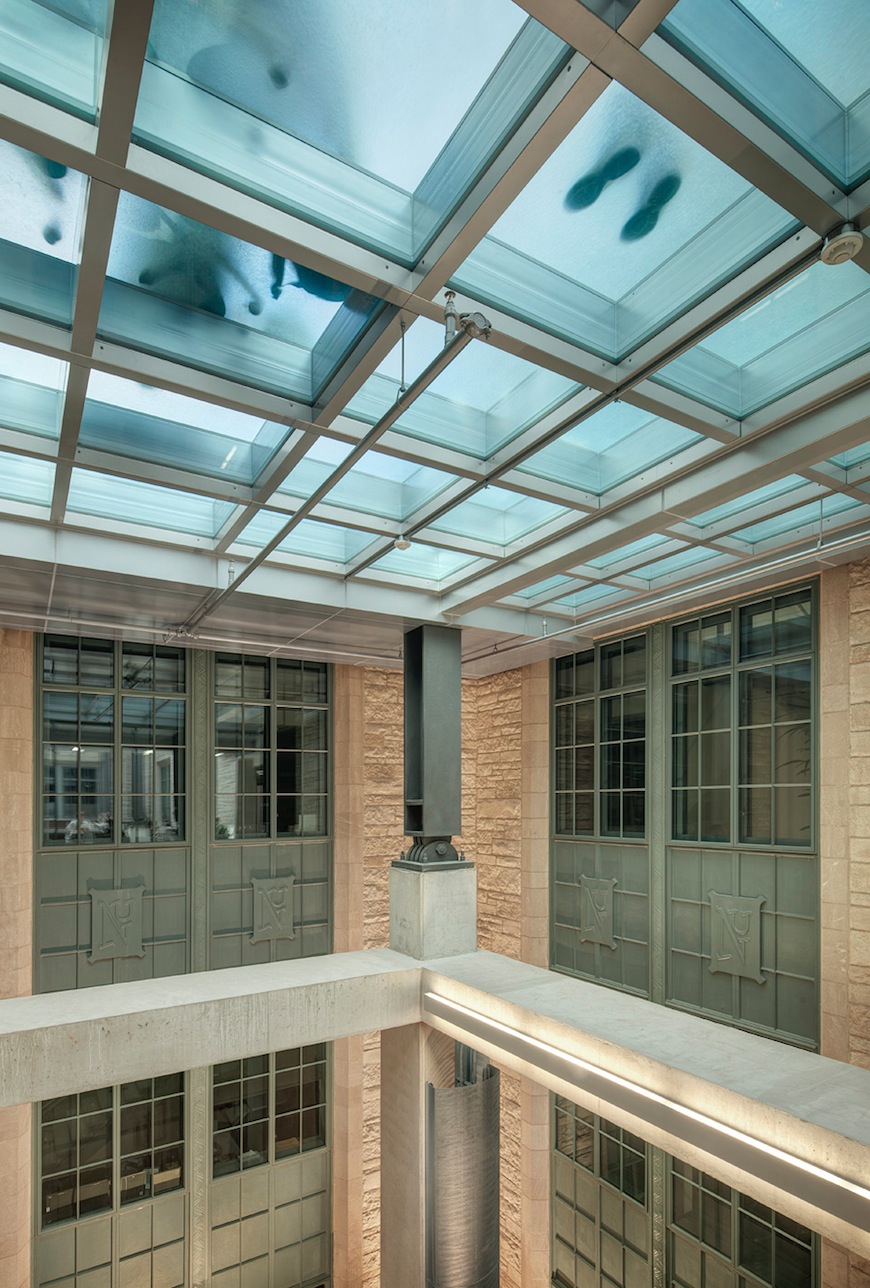
Fire-rated glass floor system doubles as light well. Photo: courtesy TGP
The fire-rated glass floor system supports loads up to 150 psf (732 kg/m2), which creates additional usable space in the project. The system’s textured, top-surface glass provides students and faculty with the necessary traction to walk across its surface without slipping. The use of ceramic etched laminated glass creates a mild opacity that allows the system to diffuse daylight from above the atrium down into the nuclear magnetic resonance ground-floor lab.
“Direct sunlight could damage the highly specialized instruments in the nuclear magnetic resonance lab,” says Garrett. “The pattern on the fire-rated glass floor system creates just enough opacity to allow for the transfer of soft, even light.”
Today, students studying on the fire-rated glass floor system can see the shape of instruments in the lab below. At the same time, the translucent glass provides privacy from ground-floor occupants looking up towards the light well above.
“It’s great to see the students are comfortable on the fire-rated glass floor. They have no hesitation to spend time studying on it,” adds Garrett.
For more information on the Fireframes ClearFloor System, along with TGP’s other specialty architectural glass and framing, visit www.fireglass.com.
Technical Glass Products
800.426.0279
800.451.9857 – fax
sales@fireglass.com
www.fireglass.com
Related Stories
| Dec 28, 2014
Robots, drones, and printed buildings: The promise of automated construction
Building Teams across the globe are employing advanced robotics to simplify what is inherently a complex, messy process—construction.
Sponsored | | Nov 19, 2014
Fire resistive, blast-resistant glazing: Where security, safety, and transparency converge
Security, safety and transparency don’t have to be mutually exclusive thanks to new glazing technology designed to support blast and fire-resistant secure buildings. SPONSORED CONTENT
Sponsored | | Oct 29, 2014
What’s the difference between your building’s coating chalking and fading?
While the reasons for chalk and fade are different, both occurrences are something to watch for. SPONSORED CONTENT
| Oct 14, 2014
Proven 6-step approach to treating historic windows
This course provides step-by-step prescriptive advice to architects, engineers, and contractors on when it makes sense to repair or rehabilitate existing windows, and when they should advise their building owner clients to consider replacement.
| Oct 2, 2014
Effective use of building enclosure mock-ups within the commissioning process
Engineers from SSR offer advice and guidelines on implementing building enclosure mockups on any project.
Sponsored | | Sep 8, 2014
Metal roof and wall panels provide strong wind resistance
In areas that experience strong winds, metal roof and wall panels provide a sturdy, well-tested option for building envelope design.
| Sep 7, 2014
Building the cladding palette: panels, rainscreens, and veneers [AIA course]
When it comes to cost, performance, and aesthetics—not to mention maintenance and long-term resilience—the evaluation of cladding materials and façade systems is more complex than ever. This course is worth 1.0 AIA CES HSW learning units.
Sponsored | | Aug 16, 2014
Fire-rated framing system makes the grade at Johnson & Wales University Center
The precision engineering of TGP’s Fireframes Aluminum Series creates narrow profiles and crisp sightlines at Johnson & Wales University Center for Physician Assistant Studies
| Jul 17, 2014
A harmful trade-off many U.S. green buildings make
The Urban Green Council addresses a concern that many "green" buildings in the U.S. have: poor insulation.
| Jul 1, 2014
Sochi's 'kinetic façade' may steal the show at the Winter Olympics
The temporary pavilion for Russian telecom operator MegaFon will be wrapped with a massive digital "pin screen" that will morph into the shape of any face.


